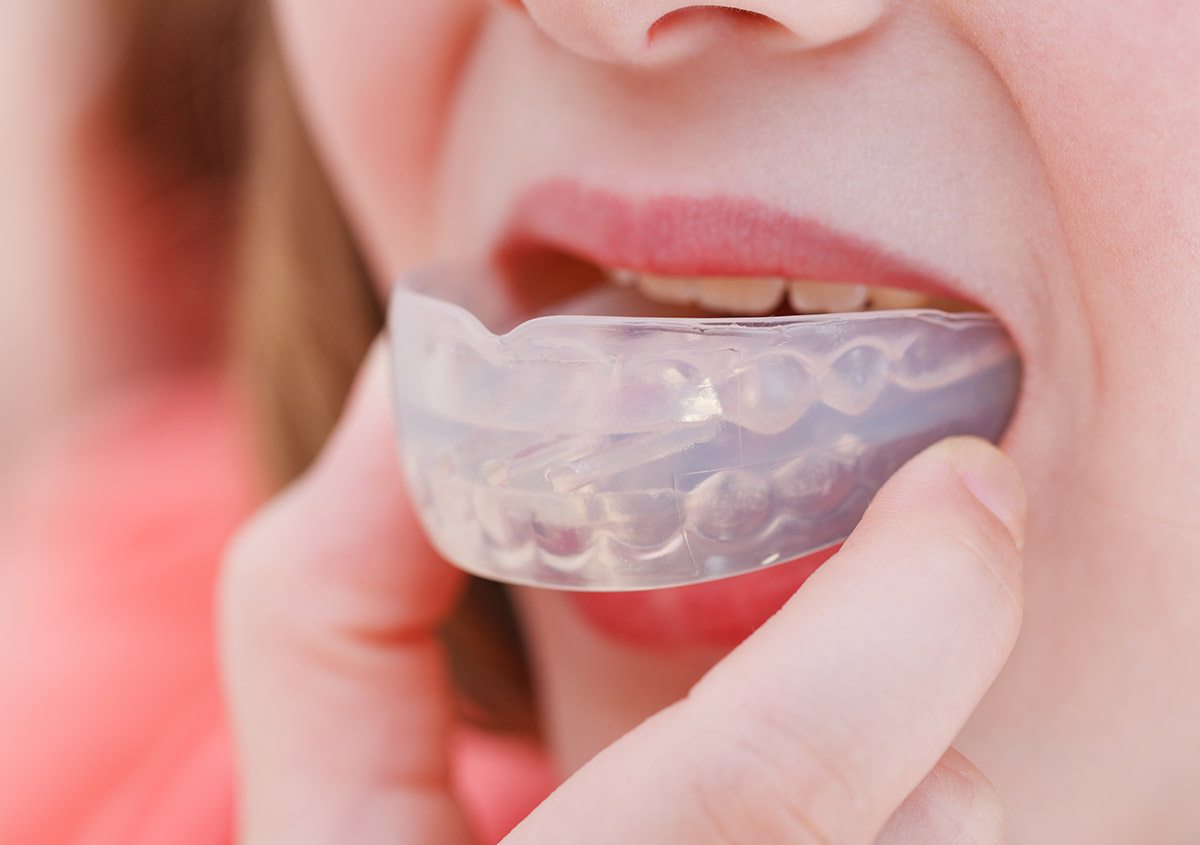


Most folks who have used nightguards have a murky history of being told they had a bruxing (grinding) or clenching problem that was wearing down their teeth. A few had guards that were recommended for jaw (TMJ) issues. And,I would say that the the overwhelming majority of new patients, perhaps 85%, don’t like or use their nightguard. There are as many reasons given as to why as there are why not to have one’s homework – including the dog ate it!
Judging by the number of reasons, and the variety interesting designs that have walked into my office, I felt “nightguards” could use some addressing. I like the term oral orthotic also and use the terms interchangeably.
Reasons I may place a nightguard (orthotic) include:
Nightguards have been designed to fit either over the upper teeth, or the lower teeth, sometimes to fit over both upper and lower teeth(scary). Some have wires to keep them in place. Whether good or bad, they all basically do one thing and that is keep the upper and lower teeth from touching by providing an interference between the upper and lower teeth chewing surfaces.
Nightguards are prescribed most commonly for jaw joint issues (TMJ or TMD), tooth pain or wear, and to diagnose occlusal (bite) issues prior to restoring the chewing surfaces of back teeth. For all of these reasons, the term orthotic is especially appropriate here, and must meet very specific criteria. Permanent injury, increased pain, lost time and money result when poorly crafted orthotics are worn.
If a nightguard isn’t worn, both the medical/dental issue is not being helped and it is a waste of time and money. Any nightguard should fit comfortably and well on the upper teeth, allow the jaw joints to reside in their most comfortable, relaxed position and provide even contacts for all the back teeth without interferences which would trigger bruxing or grinding. Drug store guards for sport use are notorious for increasing grinding, clenching and pain!
The most important criteria, the separation of the teeth mentioned above cannot be arbitrary! Even the smallest change in tooth separation effects the position of the jaw joint and visa versa. Ever had a seed stuck on the chewing surface of the tooth? It’s about all one can think about till it is removed! Leave the seed there and the jaw positions itself to avoid the interference; the result is that muscles of the face and jaw joints become painful and displaced as all body parts do when performing tasks in positions they are not designed for. Think of how walking for an extended time with a pebble in your shoe or working at a counter too low effects the back, shoulders, neck and hips.
A poorly crafted orthotic recreates the same separation interference. The result is more problems, not fewer. Appropriate separation must allow the parts of jaw joints to reside in their best position – the position which allows the muscles of the face, neck and jaw to relax. Good orthotics diminish triggers for bruxing, grinding and clenching, resulting in more comfort, and successful therapy.
To accomplish this takes study, understanding and expertise by the practitioner. Those patients with a long history of bruxing, grinding and clenching are frequently so “tight” that specific adjustments must be made as the muscles relax to accommodate the jaw joints “slide” to their best position. Follow up adjustments are a planned necessary part of reaching the goal.
Nightguards can save tooth structure by alleviating the affects of grinding and clenching, diminishing muscle pain and fatigue of the head, neck and face. They can soothe painful jaw joints by providing them with a best position for better health through better sleep. Nightguards are an important tool to plan fixing the bite surfaces of the back teeth. In all instances, they have the ability to improve the health beyond the mouth. The result is happy muscles and joints – there’s something to smile about!

Send Us a Text: 855.441.0001
Or click below to schedule an appointment online - our team is ready for you and ready to help keep your health the focus.